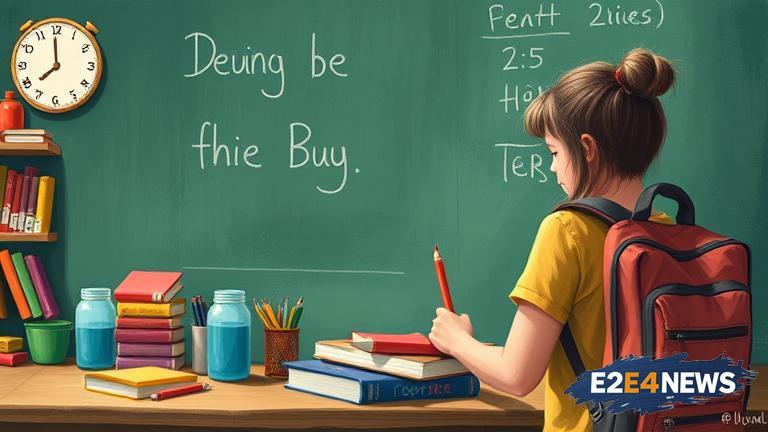The back to school season is upon us, and with it comes the annual debate about school supplies. This year, however, a growing trend of parents refusing to buy school supplies has ignited a heated discussion on social media. Some parents are taking a stand, arguing that it’s not their responsibility to provide basic supplies for their children’s education. They claim that schools and teachers should be providing these necessities, rather than placing the burden on families. On the other hand, some argue that parents have a responsibility to provide for their children’s educational needs, and that refusing to buy supplies is a form of neglect. The debate has sparked a wider conversation about the role of parents and schools in providing for students’ educational needs. Some argue that schools should be providing more support for low-income families, who may struggle to afford basic supplies. Others claim that parents who refuse to buy supplies are simply being lazy or entitled. The issue has also raised questions about the quality of education and the resources available to students. Some parents are arguing that if schools can’t provide basic supplies, how can they be expected to provide a quality education. The debate has also sparked a discussion about the commercialization of back to school shopping, with some arguing that the emphasis on buying expensive supplies is unnecessary and excessive. Some schools are now opting for digital supplies, such as online textbooks and educational software, which can be more cost-effective and environmentally friendly. However, others argue that this approach can be exclusionary, as not all students have access to the necessary technology at home. The issue has also raised concerns about the impact on teachers, who may be expected to provide supplies out of their own pocket. Some teachers are speaking out about the financial burden of providing supplies, and the impact it has on their ability to provide a quality education. The debate is not limited to the US, with parents and educators around the world weighing in on the issue. In some countries, schools are expected to provide all necessary supplies, while in others, parents are expected to provide everything. The issue has also sparked a discussion about the role of government in providing for education, with some arguing that more funding is needed to support schools and students. As the debate continues, it’s clear that there are no easy answers. However, one thing is certain – the issue of school supplies is a complex and multifaceted one, and it will require a nuanced and thoughtful approach to resolve. The conversation is ongoing, with parents, educators, and policymakers all weighing in on the issue. As the new school year begins, it’s likely that the debate will only continue to grow. Some parents are calling for a more comprehensive approach to addressing the issue, one that takes into account the needs of all students and families. Others are arguing that a more radical approach is needed, one that challenges the underlying assumptions about the role of parents and schools in providing for education. The issue has also sparked a discussion about the impact on student outcomes, with some arguing that the lack of basic supplies can have a negative impact on academic achievement. As the debate rages on, it’s clear that the issue of school supplies is one that will continue to be a major topic of conversation in the coming months and years. The question of who should provide school supplies is a complex one, and it will require a thoughtful and nuanced approach to resolve. The issue has also raised concerns about the impact on the environment, with some arguing that the emphasis on buying new supplies is unnecessary and wasteful. Some schools are now opting for sustainable supplies, such as reusable bags and refillable pencils, which can help reduce waste and promote environmental awareness. The debate is a reminder that the issue of school supplies is not just about education, but also about social justice and environmental sustainability.
